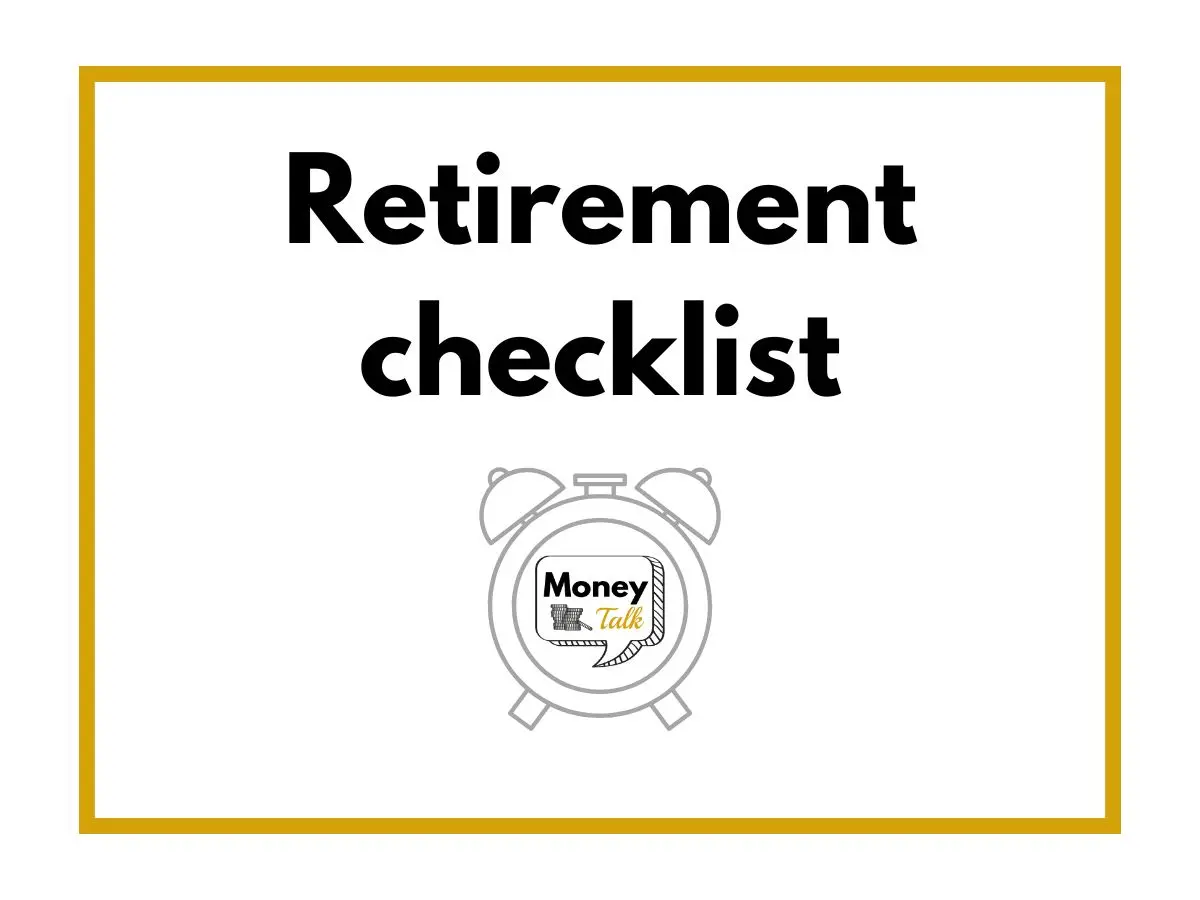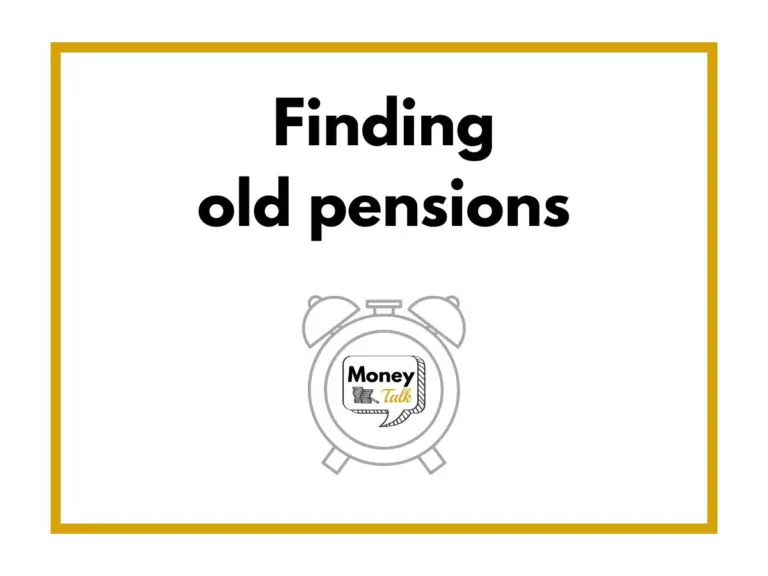Retirement checklist: What to do before you retire
Money Talk is intended to inform and educate; it's not financial advice. Affiliate links, including from Amazon, are used to help fund the site. If you make a purchase via a link marked with an *, Money Talk might receive a commission at no cost to you. Find out more here.
The trick to retiring comfortably is to prepare as far in advance as possible, giving your pension investments plenty of time to grow.
But what if you’re already approaching retirement age?
If you have 10, five or even less than a year to go, there are still plenty of things you could be doing to shore up your finances for the day you stop working.
From finding lost pension pots to reviewing your State Pension, here’s your ultimate countdown to retirement checklist.
More than 10 years to go
Plot out your retirement
Before you ever look at the financial side of things, you should think about when you might want to retire and what you might want to do.
You might love your job and want to keep working after the State Pension age, for example, or you might want to retire early and live several decades in leisure.
Plotting out your retirement plan will help you work out how much money you need to retire and how long you have to save up for it.
In an ideal world, you would do this as early as possible – in your 20s even – so you have more options as you approach retirement age.
Check your State Pension
Eligibility for the State Pension isn’t guaranteed.
Whether you get a payout at all, and how much you get, depends on how much National Insurance contributions you’ve paid.
Because you need at least 10 years of National Insurance contributions to be eligible for any State Pension, and at least 35 years to get the full amount, it’s worth checking your State Pension forecast well ahead of retirement.
This is especially true if you’ve taken extended time off work, been on a low income or worked abroad for a significant amount of time.
Ten years to go
Assess your financial situation
You should assess your financial situation throughout your life, and have a robust financial plan in place, but it’s particularly important as you approach retirement age.
As part of that, you’ll need to tally up your assets, income, savings and investments, pensions and any other sources of wealth, and stack these up against any liabilities and living costs you expect to have when you retire.
Doing this at least 10 years before you retire will give you time to check whether you’ve saved enough and can afford to retire, or whether you need to readjust your expectations and work longer.
Rebalance your portfolio
While you’re young, you can afford to invest your pension in higher risk portfolios.
Your pension pot might suffer big losses during this period, but it might also enjoy big gains that help to even things out over time.
As you approach retirement, you need to rebalance your portfolio in the other direction, swapping those high risk investments for lower risk ones so your retirement income is more or less guaranteed when you do finally cash out.
Around five to 10 years before you expect to access your pension is a good time to do this.
It’s important to get tailored financial advice from a specialist pensions adviser to maximise your portfolio and to see whether you might benefit from any tax breaks.
The company that provides your pension might be able to offer this service but you can also find an independent financial adviser via platforms such as Unbiased*.
Read this: What if the value of your pension falls?
Five years to go
Find lost pension pots
If you’ve changed jobs a few times during your working life, you’ll probably have a couple of pension pots lying around.
This is even more likely since auto-enrolment for workplace pensions became mandatory in 2018, and all employees had to set up pensions for eligible workers.
The government’s free Pension Tracing Service will help you find lost pensions even if you no longer have the paperwork for them – you just need to provide your employer’s name or that of your pension provider.
Once you have a list of your lost pensions, you can decide whether to merge your pension pots or take advantage of the tax benefits around cashing out small pension pots as a lump sum.
Pay off debts
If you have outstanding debts, including a mortgage, having a plan in place to pay them off becomes increasingly important as you approach retirement.
Ideally you’ll want to clear them all before you retire because for most people, their retirement income is significantly lower than what they earned while working.
Five years gives you a good stretch of time to pay down any debt in a manageable way – or to extend your working life if you need to.
One year or less to go
Know your options
Once you’re 50, you can get a free, hour-long appointment with the government-backed service, Pension Wise.
It covers things like when you can access your pension, how you can withdraw the money, the tax implications and the scams to look out for.
It’s intended to be guidance rather than tailored advice but can give you an overview of the options available to you and perhaps demystify any confusing pension terms.
Double check your taxes
Pension income is taxed just like any other source of income.
That means the amount you owe can depend on things like whether you’re still working, if you have income from property or other sources, and how you’re withdrawing your pension.
Depending on your situation, retirement could mean additional tax obligations for you during the transition period.
In some cases, you may need to fill out a self assessment tax return even though you’ve never had to do it before.
Again, this is where tailored advice can help.
Apply for your State Pension
The State Pension isn’t automatically paid out – you actually have to apply for it.
You should receive a letter with instructions on how to apply about four months before you reach your State Pension age.
It can take up to five weeks before you receive your first payment, though.
Check your retirement benefits
Once you’ve submitted your State Pension application, you should get a confirmation with the amount of money you can expect to receive.
If the combination of your State Pension, private pensions and any other savings, investments and income puts you in a low income bracket, you may be eligible for Pension Credit, an extra benefit that tops up your pension income.
Again, you’ll need to apply for it so it’s worth getting your paperwork together before you retire.
More generally, there are lots of discounts and freebies available to pensioners – some before you even reach pension age – so it’s worth looking these up before you retire.
Things like free bus passes are obvious but you might also be eligible for financial help towards your energy bills or discounts at certain shops, for example.
Do pension admin
Applying for the State Pension and other benefits isn’t the only bit of pension admin you need to do.
If you have a workplace pension, your portfolio is most likely attached to your work email.
So before you leave work altogether, you should make sure all of your contact details are up to date.
If you received other benefits through work, such as a healthcare or dental plan, this is also the time to decide whether you’d like to continue receiving these benefits and pay for them yourself.
Mentally prepare for retirement
Preparing for retirement isn’t just about the money side of things – you need to prepare mentally as well.
So much of our identity and lifestyle is intertwined with our jobs so it can be hard to step away.
Depression, anxiety, and boredom can all come knocking when you stop working so it’s important to establish a new purpose and routine after retirement.
Retirement
Work out your budget
Once you’ve settled into retirement, it’s worth reviewing your budget.
Your routine and spending habits might have completely changed in retirement so it’s worth working out whether your pension income still supports your lifestyle or if you need to make adjustments.
You’ll still need an emergency fund, but it might not need to be as large as before if you’ve managed to clear your debts and have far fewer outgoings.
Review your will and inheritance plans
You should think about making a will as soon as you own assets, whether that’s a home, a car or something else valuable.
It should be updated whenever a major life event takes place, such a birth, a marriage, a death and of course in retirement.
When you retire, you should have a clearer idea of what you own, what you plan to spend, and how much you plan to leave behind and to whom.
Putting this on a formal, legal document reduces the paperwork your loved ones have to deal with in the event of your death.
As part of drafting up or reviewing your will, you may also want to think about inheritance planning.
If you have a significant estate, planning ahead can significantly reduce the inheritance tax bill your heirs are liable for.
Read this: What you need to know about making a will
Pin this for later








